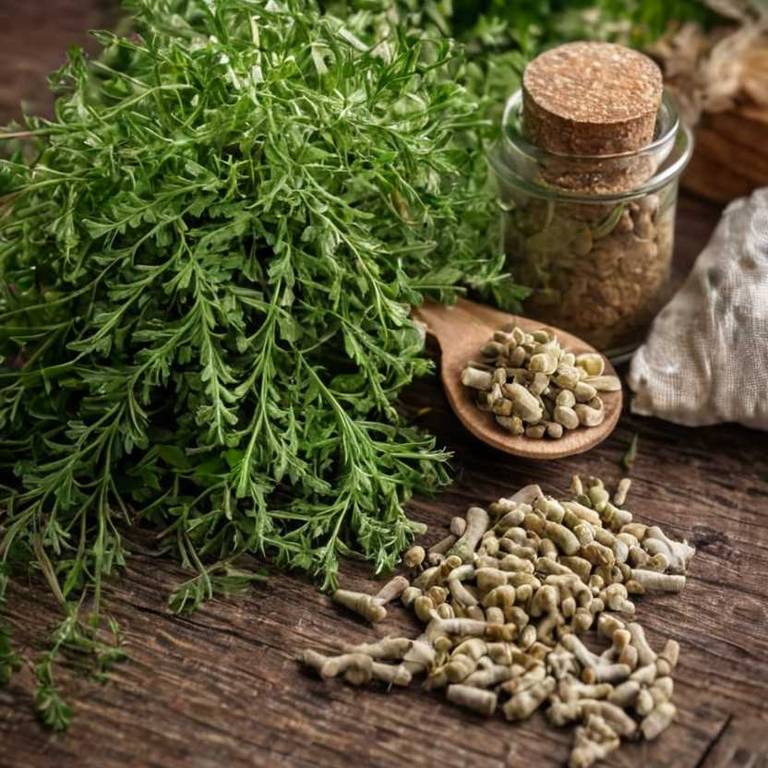Parsley
Petroselinum crispum
Ashwagandha is a prominent medicinal herb in Ayurvedic medicine, classified as a rasayana (rejuvenator). It is primarily utilized as an adaptogen to help the body manage physical and chemical stress.
Family
Solanaceae (Nightshade)
Native Region
India, Middle East, Africa
Part Used
Root, Leaf, Berry

Botanical Identification
Parsley is known scientifically as Petroselinum crispum. It belongs to the Apiaceae family. Common names include flat-leaf parsley and curled parsley. It is an annual herb native to the Mediterranean region. The plant has finely divided leaves, small yellow flowers, and a taproot. It is also referred to as rock parsley in some herbal texts.
Active Compounds
Parsley contains essential oils, flavonoids, and coumarin as its primary bioactive compounds. These compounds work together to provide its therapeutic effects, with essential oils contributing to its aromatic and antimicrobial properties. Flavonoids and coumarin support anti-inflammatory and antioxidant activities, enhancing the herb's overall medicinal value.
- Essential oil
- Flavonoid
- Coumarin
Therapeutic Indications
| System | Condidtion | Action |
|---|---|---|
| Respiratory | Colds, bronchitis, asthma, respiratory infections, common cold | Expectorant, anti-inflammatory, bronchodilator, antimicrobial |
| Digestive | Gastrointestinal inflammation, nausea, stomach ulcers, digestive issues, gastrointestinal gas | Antimicrobial, carminative, antiflatulent |
| Integumentary | Skin infections, skin irritations, fungal infections | Antimicrobial, antiseptic, antifungal |
Preparation Methods
Culinary use: Used for digestive issues and as a general tonic due to its digestive and antioxidant properties.
Infusion: Used for respiratory issues like coughs and colds due to its expectorant and antiseptic properties.
Decoction: Used for muscle pain and inflammation due to its anti-inflammatory and analgesic properties.
Safety Profile
Parsley is generally safe when consumed in normal food amounts. However, it should be avoided during pregnancy due to potential uterine stimulation. Large doses may cause gastrointestinal upset or allergic reactions in sensitive individuals.